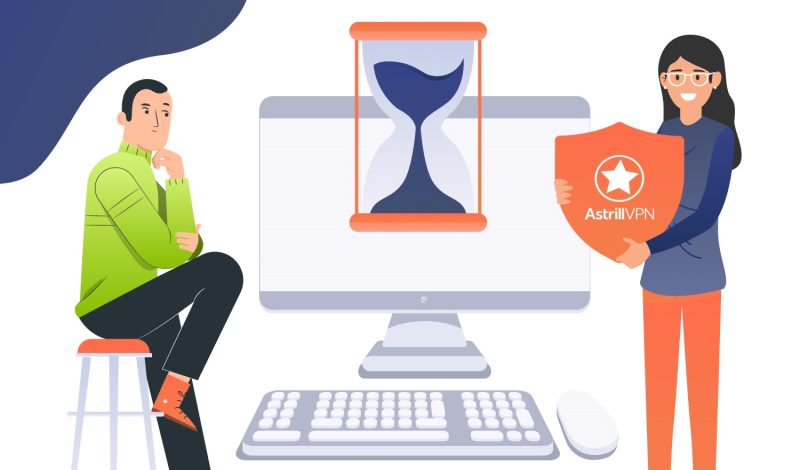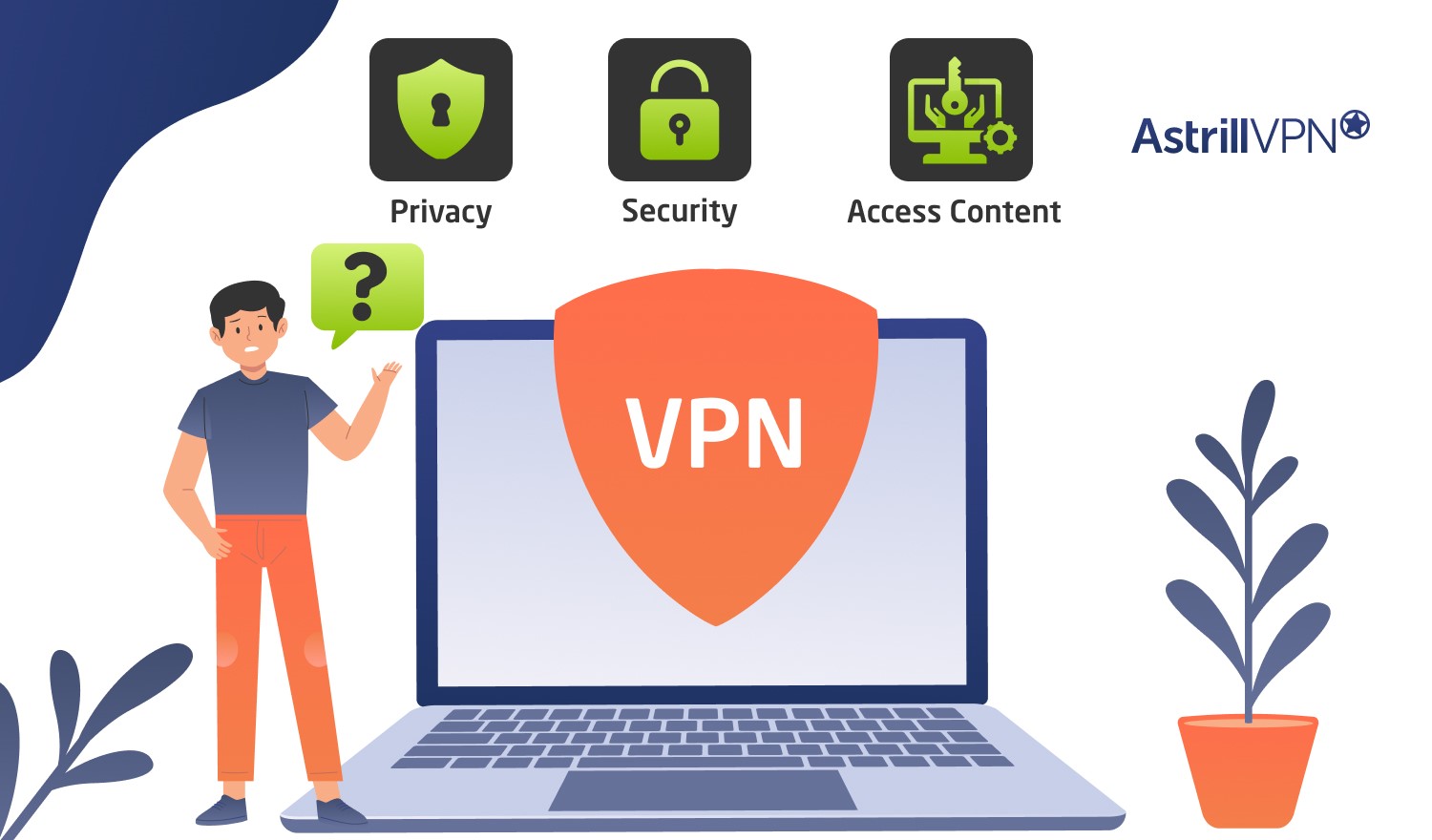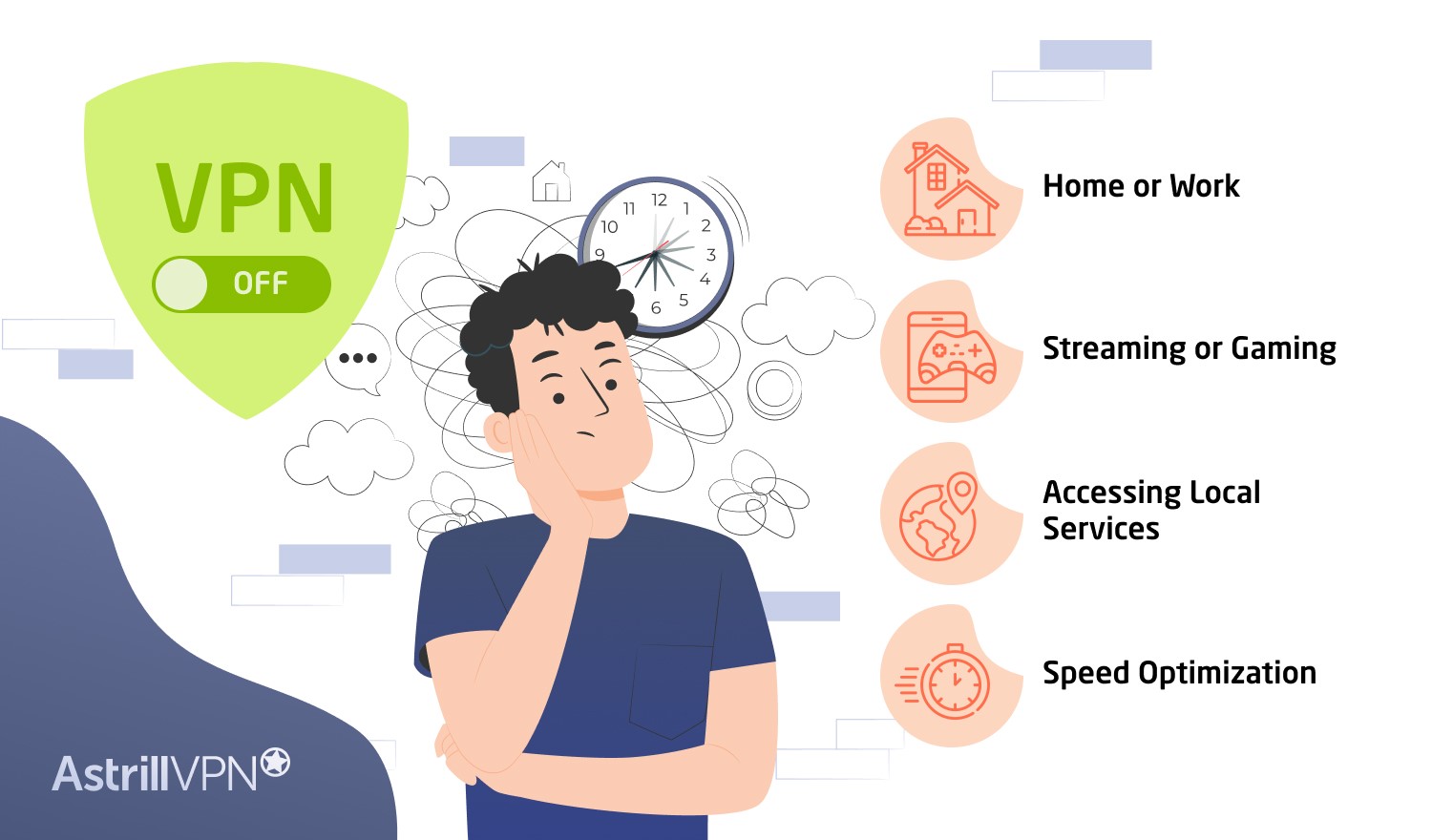Should I always use a VPN? A Guide to Smart VPN Usage

Bisma Farrukh

You’re probably wondering if you need to always use your VPN. After all, turning on your VPN can feel like a hassle, and you want to know if it’s worth the effort. But how do you decide when to flip that switch? VPNs are great for security and privacy, but you don’t need to use them nonstop. Knowing when to turn your VPN on and off can help you maximize the benefits while minimizing the drawbacks. So, in this article, we’ll walk through when you should use your VPN and when it’s safe to surf without it. We’ll cover the key factors to consider and give you a simple framework to determine if now is the right time to fire up your VPN or if you can safely go without.
Table of Contents
Are VPNs necessary?
What is a VPN?
A VPN (Virtual Private Network) is like a secure tunnel for your internet connection. It encrypts your data and hides your IP address, making it harder for anyone to spy on your online activities or track your location.

Why Use a VPN?
- Privacy: VPNs protect your privacy by hiding what websites you visit, files you download, and apps you use from your internet service provider (ISP), hackers, and other prying eyes.
- Security: Public Wi-Fi hotspots can be risky. A VPN encrypts your connection to help prevent snooping and cyberattacks on open networks.
- Access Content: VPNs can bypass geographic restrictions to let you access streaming services, websites and apps that might be blocked in your region.
Who Uses VPNs?
VPNs are popular with people who value online privacy and security, like journalists, activists, or anyone handling sensitive data. But they’re also handy for everyday tasks like streaming shows while traveling or shopping online securely from public hotspots.
Whether you’re trying to stay safe on public Wi-Fi, access your favorite streaming content, or just keep your browsing habits private, a quality VPN like AstrillVPN can give you more privacy and freedom online.
Should I always use a VPN?
Privacy and Security First
If privacy and online security are top priorities, you should use a VPN whenever possible. A virtual private network encrypts your internet traffic and masks your IP address, protecting your data from prying eyes. This is crucial when using public WiFi hotspots, which are notoriously insecure.
Streaming and Downloads
A VPN can also access geo-restricted content by spoofing your location. So, if you want to stream shows from other countries or download files anonymously, fire up your VPN.
When should you connect to your VPN?
Accessing Public WiFi
You’ll want to fire up your VPN anytime you connect to public WiFi. These insecure networks make it easy for hackers and snoopers to intercept your online activities and data. A virtual private network encrypts your traffic, shielding it from prying eyes.
Torrenting or P2P Sharing
Many internet providers monitor and throttle torrenting traffic. Using a VPN masks your P2P activities, preventing your ISP from slowing your downloads or sending copyright notices. It also hides your IP address from others in the swarm.
Bypassing Geo-Restrictions
Streaming services, gaming platforms, and websites often restrict content based on your geographic location. A VPN lets you bypass these digital borders by connecting you to a server in an approved region.
Enhancing Online Privacy
Even if you’re not doing anything “sensitive,” you may still want to hide your browsing habits from your ISP, employer, government, or advertisers, who may be tracking you across sites. A trustworthy no-logs VPN prevents this monitoring by encrypting and anonymizing your traffic.
When Privacy is Critical
Anytime you need to handle sensitive data or communications, it’s smart to route your connection through a secure VPN tunnel. This protects activities like online banking, discussing confidential business, or accessing health records from eavesdropping.
Times When You May Want Your VPN Turned Off

At Home or Work
You may not need a VPN when you’re at home or work or connected to a trusted private network. Your internet service provider and network admin take care of security. Using a VPN could even slow things down unnecessarily.
For Streaming or Gaming
Many streaming services and online games don’t work properly when using a VPN. They can detect the VPN connection and block or throttle your access. For the best performance, you’ll want to disable your VPN temporarily.
Accessing Local Services
Some local network services, like printers or file servers, may not be accessible when your VPN is on. Turning it off gives you full access to resources on your local network.
For Speed Optimization
VPN encryption adds overhead that can slow down your internet connection. Disabling the VPN eliminates that bottleneck if you need maximum download and upload speeds, like for large file transfers.
The key is being smart about when you use your VPN and when you don’t. Leaving it on 24/7 isn’t always ideal or necessary. Use it for privacy, security and access – but feel free to disable when you don’t need those benefits.
Should I always use AstrillVPN?
The simple answer is no. You don’t need to keep your AstrillVPN connected 24/7. There are times when it makes sense to use AstrillVPN and times when it’s perfectly fine to browse normally.
When to Use a VPN?
Using a trusted VPN like AstrillVPN is highly recommended in these key situations:
- Anytime you’re on public WiFi (airports, cafes, etc.) to protect your data as it has kill/switch feature for protection of data if connection fails.
- When torrenting or downloading files to avoid copyright issues.
- To access geo-restricted content like streaming shows while traveling.
- If you need to bypass internet censorship in certain countries.
Should VPN be on or off?
There’s usually no need to enable your VPN for basic browsing at home or work. Your internet service provider can still see your activity, but it’s encrypted traffic from HTTPS sites.
Other times when it’s okay to go without a VPN:
- Streaming video services you’re already subscribed to.
- General web browsing and online shopping from trusted sites.
- Using apps and services that require your real IP and location.
The key is using your VPN strategically for situations that call for enhanced privacy and security. But you don’t have to be connected all day it can slow your connection down unnecessarily.
When should a VPN not be used?
For super-fast internet speeds
A VPN encrypts your internet traffic, which can slightly slow down your connection speeds. If you’re doing something that needs lightning-fast internet, like streaming 4K video or playing online games, you may want to disconnect your VPN temporarily.
On trusted networks
There’s no need to use a VPN on networks you fully trust, like your home WiFi or mobile data. VPNs encrypt your traffic to prevent snooping on public networks. At home, just make sure your router password is strong.
For local services
Some smart home devices, media streamers, and other local services may not work properly when your traffic is routed through a distant VPN server. If you have issues accessing local resources, try disabling the VPN first.
When bandwidth is limited
Most decent VPN providers don’t cap your data usage. But running a VPN could eat through that cap faster if you’re tethering off a mobile hotspot with limited high-speed data. Monitor your data usage closely.
On work/school networks
Many workplaces and schools block VPN connections for security and monitoring purposes. Using a VPN could violate their acceptable use policies, so check first. They may provide an approved corporate VPN instead.
Tips for Smart VPN Usage Habits
Always Use a VPN for Public WiFi
Public WiFi networks are a major security risk. Anyone, from hackers to network admins, could be snooping on the traffic. Always fire up your VPN before connecting to insecure public hotspots at cafes, airports, hotels, etc. It encrypts your data so snoopers can’t see your online activities.
Avoid Connecting to Shady Apps/Sites
Even with a VPN usage, it’s wise to avoid sketchy apps and sites that could expose you to malware or phishing attacks. While a VPN protects your traffic, it doesn’t make you immune to threats from dubious sources. Use common sense online.
Regularly Update Your VPN Software
VPN providers frequently release updates to patch security vulnerabilities and add new features. Set your AstrillVPN app to auto-update so you always have the latest version with the best protections. Outdated software can leave holes that undo your privacy efforts.
Try Split-Tunneling for Speed
VPNs can sometimes slow down your internet speeds due to encryption overhead. Many providers now offer a “split-tunneling” mode that only routes some traffic through the VPN. Use it for non-sensitive online activities to balance speed and security.
FAQs
Not necessarily. While using a VPN is recommended for protecting your online privacy and security, there are times when it may not be needed. For example, a VPN could slow things down unnecessarily if you’re accessing local network resources or using bandwidth-heavy applications like video streaming on your home network.
Absolutely! Not using a VPN isn’t inherently risky—it depends on the situation. If you’re just browsing regular websites on your home network, the risks are low. But a VPN is highly recommended for public WiFi, torrenting, or accessing sensitive info.
Free VPNs are major miss in terms of safety and privacy protection. Many have data limits, inject ads, keep logs, or even sell your data to third parties. Premium-paid VPNs from reputable providers are generally more trustworthy, with stronger encryption and no-log policies.
Conclusion
So, in the end, it comes down to thinking through when you need a VPN versus when it’s just overkill. Sure, using your VPN 24/7 keeps you ultra-secure, but it also slows down your internet and drains your battery. Instead, turn on your VPN selectively for private browsing and accessing sketchier sites. Also, use it when you’re on public WiFi. But for casual web surfing at home on your private network. Be smart when you use your VPN, and you will get the perfect balance of privacy, security, and speed.


No comments were posted yet